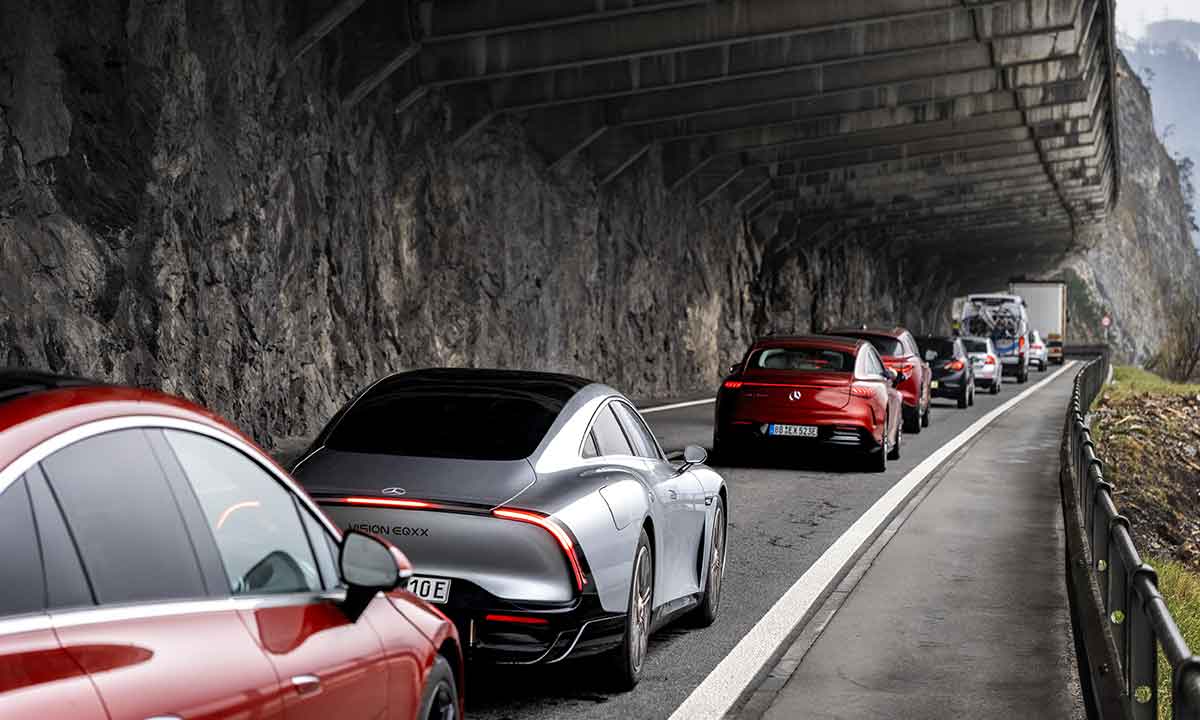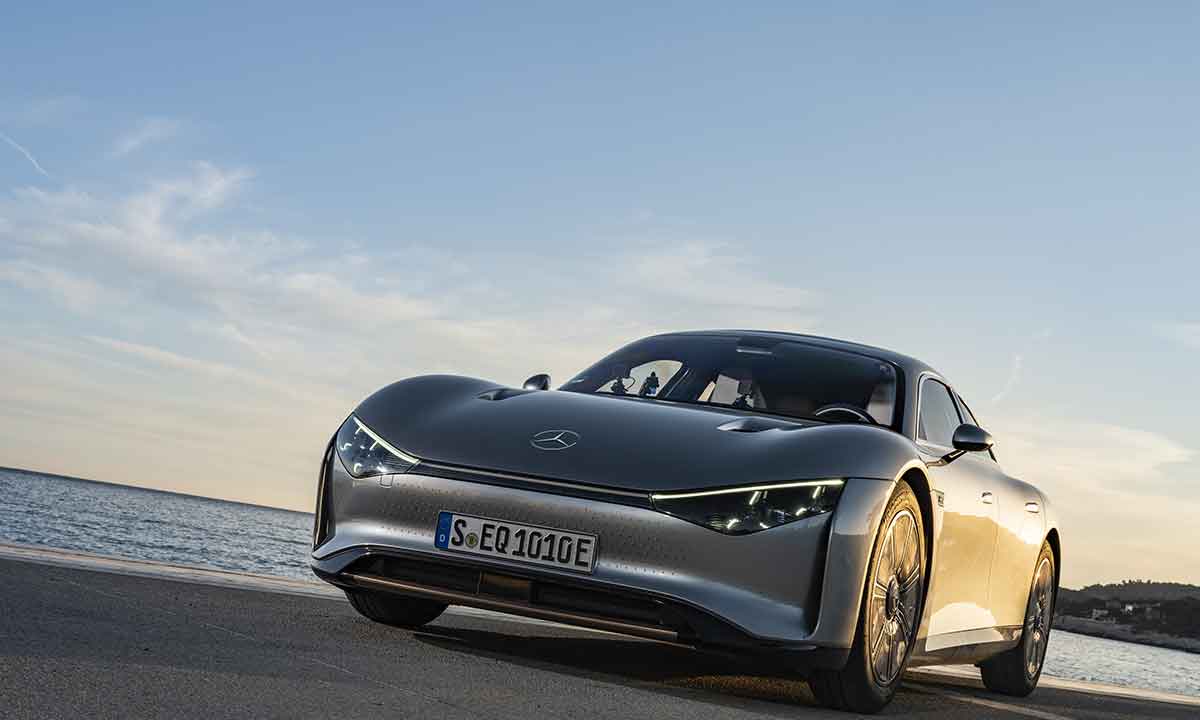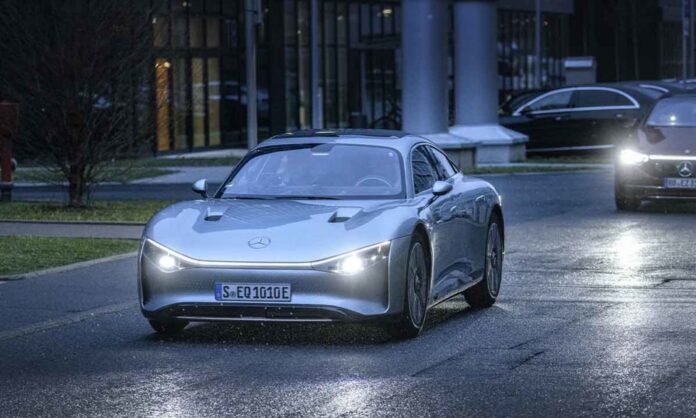Little by little, electric vehicles are making their way into the market, and some milestones, such as the one achieved by Mercedes with its Mercedes Benz Vision EQXX prototypeare an advance precisely in one of the lines of what is most demanded of pure electrics (unlike hybrids): greater autonomy that allows long trips without having to make multiple stops, from charger to charger, to avoid surprises and dislikes.
A few months ago, faced with design proposals for the charging stations of the future, based on a contest organized in Canada, I recalled the odyssey experienced by Sezar Blue, a content creator I have been following for some time, on a trip from Madrid to Galicia with his Tesla Model 3 Standard Range. And it has not been his only problem, because more recently, on a trip to Andalusia, only the kindness of the workers at the hotel where he was staying prevented him from having major problems, after encountering a charger that did not work. This is how he told it himself on his YouTube channel:
And for those who don’t know him, clarify that Sezar Blue is a proponent of electric mobility, that is to say, that these videos are not the consequence of a negative attitude towards this mobility model (in fact, he first bought a hybrid and then made the leap to the Tesla Model 3). In other words, it is the honest testimony of a person who is committed to electric mobility, but who does not hide the negative side of it either, and who unfortunately has already faced it on a couple of occasions.
We will still have to wait a few years until we have a network of charging stations that avoids these problems but, even when the time comes, it is possible that we have to continue planning the stops based on the needs of the car, and not ours. And yes, this is not a terrible problem, I know, but it does go against the principle of comfort and flexibility that the car offers us compared to other means of transport. For this reason, prototypes like this one from Mercedes seem like a great advance to me.
And what does the achievement achieved by Mercedes consist of? Well, as we can read in The Driven, his Mercedes Benz Vision EQXX prototype was able to travel from Sindelfingen, near Stuttgart, Germany, to Cassis, on the French Riviera, completing a journey of 1,008 kilometers without having to stop to recharge the battery. A milestone that, without a doubt, will help the rest of the manufacturers to also step on the accelerator in this regard, substantially improving the autonomy of certain categories of electric cars.

And I say that only certain categories because, to give an example, it would not make any sense to equip a city car with the necessary batteries to have this autonomy. However, saloons and sedans, more suitable for long distances, are the ideal candidates for this increase in autonomy, since they are the ones that would really take advantage of it. It is no coincidence that this milestone has been reached by Mercedes, a manufacturer clearly identified with that market segment. Not to mention other areas, in which Mercedes-Benz has already been working for years.
Something very interesting about this test is that part of it occurred in cold and rainy conditions, and remember that the performance of batteries decreases as the temperature drops. And in terms of speeds, there was also quite a bit of variety, from road works to highways with a fast lane of 140 kilometers per hour. The average speed of the trip was 87.4 kilometers per hourthe consumption of this Mercedes prototype was 8.7 kilowatts per 100 kilometers and, when you reach your destination, still retained about 15% charge.
This milestone, as the brand proposes, does not depend only on the capacity of the batteries. Many other aspects from the aerodynamics of the vehicle to the type and level of inflation of the tires, also affect consumption. And this is more important than it may seem at first, so it is something in which the rest of the manufacturers should carefully observe the Mercedes experiment, to extract valuable lessons.

I hope that my current car will still last me for many years, both for love and for economy. If today I were forced to change, and given that it is rare that I move it to do less than 100 kilometers (except when I go shopping, of course), in proportion to the cost of acquisition, I would not consider a electric, perhaps in any case a hybrid. However, if what Mercedes has shown us today is a sign of the future, It is possible that when I have to retire my current car, I will have changed my mind.
What do you think? Are you considering the jump to electric or have you already made it, or do you think it’s still early? And if your answer has been no or not yet, is autonomy the main reason or are there other factors?
Images: Mercedes-Benz














